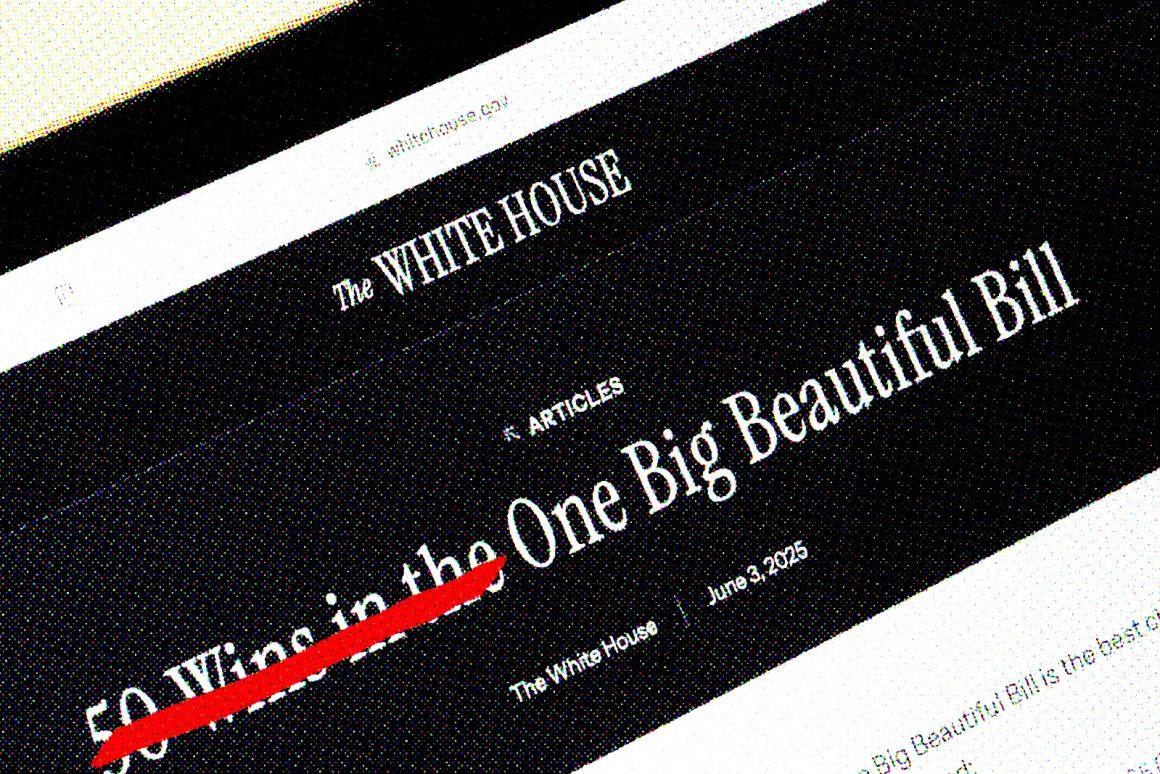In the latest episode of The Open Outcry1, BMO Global Asset Management's Head of ETF & Alternatives Strategy, Bipan Rai, sits down with Chris Krueger, Managing Director at TD Cowen in Washington, for a sweeping breakdown of one of the most consequential pieces of tax legislation in modern U.S. history: the House GOP's "One Big Beautiful Bill." From multi-trillion-dollar tax extensions and retaliatory foreign tax measures to the shifting sands of the U.S.-Canada tax treaty, Krueger's legislative insight provided essential context for what could be a turning point in both U.S. tax policy and cross-border capital flows.
Let's unpack the big picture.
"The Most Expansive and Expensive Bill in U.S. History"
Krueger gets straight to the point: "By really any metric, this is the most expansive as well as the most expensive piece of legislation in American history."
At the heart of the bill are seven sections, including extensions of the 2017 Tax Cuts and Jobs Act (TCJA), new tax provisions, spending increases, and a controversial retaliatory tax framework. It's not just an overhaul — it's a fiscal moonshot.
Most notably, the bill proposes a full extension of expiring TCJA provisions, amounting to nearly $4 trillion in tax relief. "If those are allowed to expire, this would equate to the largest tax hike in American history," Rai observes. Krueger confirms: "Absolutely. You would have a tax increase on most Americans."
Layered on top is $1.5 trillion in new tax cuts, aimed at fulfilling President Trump's 2024 campaign pledges — eliminating taxes on tips and overtime, expanding depreciation rules, and promoting domestic capital expenditure. "The idea is really spurring domestic CapEx," Krueger says.
$300 Billion in New Spending – And the Golden Dome Returns
Despite its label as a "tax bill," it also includes $300 billion in new spending. Half of that is earmarked for defense, with significant funds flowing into munitions, shipbuilding, and what Krueger dubs "a down payment" on a next-gen missile defense system: "President Trump has labeled [it] the Golden Dome… essentially Reagan's SDI, the Star Wars missile system."
The other half targets border security and deportation efforts — issues that will almost certainly shape the partisan tone of upcoming debates.
Offsets: A Tough Sell in the Senate
Funding this sprawling package requires $1.5 trillion in offsets, with Medicaid and green energy tax credits in the crosshairs. "Both of these are likely to be watered down in the Senate," Krueger says, highlighting the tight political margins. "The most important number in the bill is actually three. You can lose three Republican senators and still pass the bill."
That arithmetic underscores how finely balanced this bill is — between deficit hawks and pro-growth advocates, between fiscal conservatism and electoral promises.
Section 899: From Trade War to Capital War?
Perhaps the most controversial element of the bill is Section 899, a newly created provision that Krueger describes as "self-executing." It targets countries imposing "unfair taxes" — including digital services taxes and the OECD's global minimum tax framework — by incrementally raising U.S. withholding and income tax rates on foreign investors from those nations.
"It starts at 500 basis points and phases in annually to a maximum of 2,000 basis points over four years," says Krueger, applying to dividends, interest, royalties, and rents — but not capital gains, at least not yet. Countries like Canada, with a 3% digital services tax, could see their withholding rate jump from 15% (under treaty) to as high as 35% if nothing changes.
Rai presses the implications: "A tax that punishes foreign investors would likely mean those assets need to revalue lower… Is this a sign the trade war is migrating into something akin to a capital war?" Krueger's reply: "The short answer… is yes."
And the U.S. isn't backing off: "We're starting to get into newer fronts outside of just a discussion on goods… capital flows, the financial plumbing of the global economy — there is real execution risk there."
Canada, the USMCA, and the G7 Wildcard
Despite the potential economic blowback, Krueger stresses that there's still diplomatic room to maneuver. "There will be ample opportunity for this issue and a host of others to be addressed within the broader USMCA renegotiation," he says, noting Secretary Bessent's visit to Canada and a U.S. Senate delegation's trip north ahead of the G7 meetings in Alberta. "The lines of communication are certainly open."
Repealing or amending the Canadian digital service tax would likely nullify Canada's exposure to Section 899 — but this assumes that tax treaties will retain their force. "The interesting thing about this provision is that it effectively overrides existing tax treaties," Rai points out, a detail Krueger confirmed.
Senate Sticking Points and Timeline to Watch
Looking ahead, the Senate will likely revise the bill to address a few key issues:
- Baseline adjustments to assume permanency of TCJA extensions (making the bill even costlier)
- Scaling back Medicaid and SNAP (food stamp) cuts
- Watering down offsets for green energy incentives
Despite objections from some GOP senators, Krueger notes the numbers still work. "You only need 50 Republican senators, and there are far more senators pushing to minimize some of those Medicaid cuts than senators arguing the other side."
The legislative calendar matters too. "The big one is the debt limit," says Krueger, pegging June 27 as the likely Senate target. "The House has a soft circle deadline of July 25, ahead of their 39-day recess. That gives Treasury a decent cushion," he adds, before the "ex-date" for U.S. debt runs into late August or early September.
Bottom Line: "Impossible but Also Inevitable"
Krueger sums up the legislative contradiction: "We've said the bill is both impossible but also inevitable." Its scope is breathtaking, its implications — economic, geopolitical, and diplomatic — vast. Whether it survives intact or in softened form, one thing is clear: this is not just tax policy. It's a map of where America sees itself in the global order.
And for investors — especially foreign ones — it may be time to buckle up. The terrain is shifting.
Footnote:
1 "The Open Outcry Podcast: https://www.bmoetfs.ca/articles/the-open-outcry-podcast-one-big-beautiful-podcast-that-unpacks-trumps-one-big-beautiful-tax-bill" BMO ETF Dashboard, 4 June 2025.













